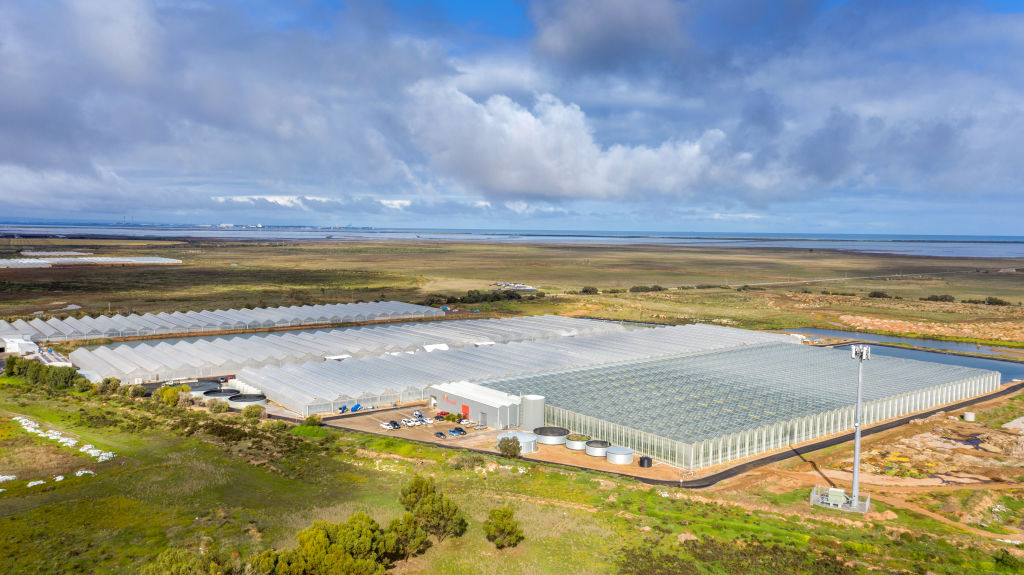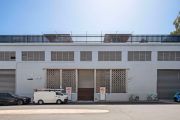
Major greenhouse farm in South Australia seeks $30 million to grow
A major greenhouse business growing tomatoes, eggplants and cucumbers on the outskirts of Adelaide is expected to attract investment offers of around $30 million as the owners look to ramp up expansion plans.
As the impacts of climate change and global concern about food security increase the demand for food grown in highly controlled environments, the owners of P’Petual Holdings are set to test investor appetite for protected cropping assets.
Operating since 1997, the business has expanded to become one of the country’s largest greenhouse vegetable growers and a major supplier to supermarkets and greengrocers in Australia and overseas.
The Buckland Park property includes a six-hectare modern glasshouse and six hectares of plastic greenhouses. Climate-control technology uses heating, fogging, shading and irrigation to produce vegetables all year round.
Colliers has been appointed to find an investor partner for the South Australian company.
“There’s an opportunity for the business to expand and the owners would like to partner with an investor to help them undertake that growth – initially in the form of the development of another four-hectare glasshouse,” said Colliers’ director of agribusiness transactions, Jesse Manuel.
Mr Manuel said the two owners were open to a variety of transaction structures.
“One being a majority stake in the business, another being a sale-and-leaseback of the real estate assets or, alternatively, an outright sale of the property and operating business.
With a surplus of land ripe for expansion, co-owner Henry Liu said, “not only are we offering a turn-key business as a going concern, but one with a production area that can be nearly doubled in size fairly quickly should one desire”.
Set on 60 hectares of land, the property spans two titles and two separate zonings. A large portion of the property is under suburban neighbourhood zoning, allowing for low- and medium-density residential development, while the developed parts of the property fall under industry zoning, allowing for a range of business, commercial and industrial activities.
Mr Manuel said protected cropping assets were tightly held in Australia among a handful of private and corporate operators and investors.
Protected cropping allows farmers to take advantage of the high prices for out-of-season vegetables.
“As crops are protected from the elements, even extreme weather is unlikely to affect them,” Mr Manuel said. “The need to use environmentally harmful chemicals such as pesticides, fungicides and herbicides to control pests, predators and weeds is greatly reduced.
“Water consumption can also be reduced significantly, as much of the water used to irrigate protected crops can be reclaimed and recycled, minimising wastage and excess water costs.”
The price of agricultural land jumped by 18.4 per cent last year and is increasingly viewed as a viable asset for institutional and corporate investors.
Colliers is seeking proposals from investors and prospective buyers for the P’Petual business and assets with expressions of interest to close in mid-July.










